Evidence for regulatory T cell induction

Results of the Immune Tolerance Network's (ITN's) study of a novel vaccine for treatment of new onset type 1 diabetes has been published in the Journal of Autoimmunity. Led by Joslin Diabetes Clinic's Tihamer Orban, the study determined that a vaccine comprised of insulin B-chain in incomplete Freund's adjuvant was generally safe and well-tolerated. Importantly, for up to two years following treatment, in peripheral blood from subjects receiving this vaccine, insulin-B-chain-specific CD4+ T cells could be detected, that showed phenotypic and functional characteristics of regulatory cells.
The 12 patient, double-blind, placebo controlled, phase I study was open to individuals between the ages of 18-35 years old, who had been diagnosed within 3 months of enrolment, and who tested positive for any of three diabetes autoantibodies (GAD65, IA2, IAA). Subjects were followed for two years after treatment. One patient experienced an adverse event related to treatment, a mild, transient discomfort at the site of injection. Thus, the study met its primary endpoint, which was safety. No significant differences in stimulated c-peptide, insulin usage or HbA1c levels were found between groups.
Several assays showed profound differences between groups in terms of immunologic response. T cells from all patients vaccinated with the B-chain developed a robust response to insulin B-chain that peaked at 24 weeks, but was detectable for up to 2 years post-treatment. Higher levels of TGF-b1 were also produced by stimulated cells taken from the treated subjects. Flow cytometry of clones derived from T cells of treated subjects showed the clones to be CD4+, CD45RO+ and FOXP3+. T cell suppression assay confirmed their suppressive capacity, providing evidence for regulatory T cell induction in this group.
The complete abstract and manuscript is currently In Press, and may be found on the Journal of Autoimmunity website.
